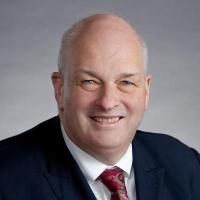Longitudinal Assessment of Modern Spine Surgery Training: 10-Year Follow-up of a Nationwide Survey of Residency and Spine Fellowship Program Directors
Date
2023-08-01
Journal Title
Journal ISSN
Volume Title
Repository Usage Stats
views
downloads
Citation Stats
Attention Stats
Abstract
Background:Spine surgeons complete training through residency in orthopaedic surgery (ORTH) or neurosurgery (NSGY). A survey was conducted in 2013 to evaluate spine surgery training. Over the past decade, advances in surgical techniques and the changing dynamics in fellowship training may have affected training and program director (PD) perceptions may have shifted.Methods:This study is a cross-sectional survey distributed to all PDs of ORTH and NSGY residencies and spine fellowships in the United States. Participants were queried regarding characteristics of their program, ideal characteristics of residency training, and opinions regarding the current training environment. χ2tests were used to compare answers over the years.Results:In total, 241 PDs completed the survey. From 2013 to 2023, NSGY increased the proportion of residents with >300 spine cases (86%-100%) while ORTH remained with >90% of residents with < 225 cases (p < 0.05). A greater number of NSGY PDs encouraged spine fellowship even for community spine surgery practice (0% in 2013 vs. 14% in 2023, p < 0.05), which continued to be significantly different from ORTH PDs (∼88% agreed, p > 0.05). 100% of NSGY PDs remained confident in their residents performing spine surgery, whereas ORTH confidence significantly decreased from 43% in 2013 to 25% in 2023 (p < 0.05). For spinal deformity, orthopaedic PDs (92%), NSGY PDs (96%), and fellowship directors (95%), all agreed that a spine fellowship should be pursued (p = 0.99). In both 2013 and 2023, approximately 44% were satisfied with the spine training model in the United States. In 2013, 24% of all PDs believed we should have a dedicated spine residency, which increased to 39% in 2023 (fellowship: 57%, ORTH: 38%, NSGY: 21%) (p < 0.05).Conclusion:Spine surgery training continues to evolve, yet ORTH and neurological surgery training remains significantly different in case volumes and educational strengths. In both 2013 and 2023, less than 50% of PDs were satisfied with the current spine surgery training model, and a growing minority believe that spine surgery should have its own residency training pathway.Level of Evidence:IV.
Type
Department
Description
Provenance
Subjects
Citation
Permalink
Published Version (Please cite this version)
Publication Info
Daniels, AH, D Alsoof, CL McDonald, AS Zhang, BG Diebo, CP Eberson, EO Kuris, W Lavelle, et al. (2023). Longitudinal Assessment of Modern Spine Surgery Training: 10-Year Follow-up of a Nationwide Survey of Residency and Spine Fellowship Program Directors. JBJS Open Access, 8(3). 10.2106/JBJS.OA.23.00050 Retrieved from https://hdl.handle.net/10161/28792.
This is constructed from limited available data and may be imprecise. To cite this article, please review & use the official citation provided by the journal.
Collections
Scholars@Duke

Christopher Ignatius Shaffrey
I have more than 25 years of experience treating patients of all ages with spinal disorders. I have had an interest in the management of spinal disorders since starting my medical education. I performed residencies in both orthopaedic surgery and neurosurgery to gain a comprehensive understanding of the entire range of spinal disorders. My goal has been to find innovative ways to manage the range of spinal conditions, straightforward to complex. I have a focus on managing patients with complex spinal disorders. My patient evaluation and management philosophy is to provide engaged, compassionate care that focuses on providing the simplest and least aggressive treatment option for a particular condition. In many cases, non-operative treatment options exist to improve a patient’s symptoms. I have been actively engaged in clinical research to find the best ways to manage spinal disorders in order to achieve better results with fewer complications.
Unless otherwise indicated, scholarly articles published by Duke faculty members are made available here with a CC-BY-NC (Creative Commons Attribution Non-Commercial) license, as enabled by the Duke Open Access Policy. If you wish to use the materials in ways not already permitted under CC-BY-NC, please consult the copyright owner. Other materials are made available here through the author’s grant of a non-exclusive license to make their work openly accessible.
